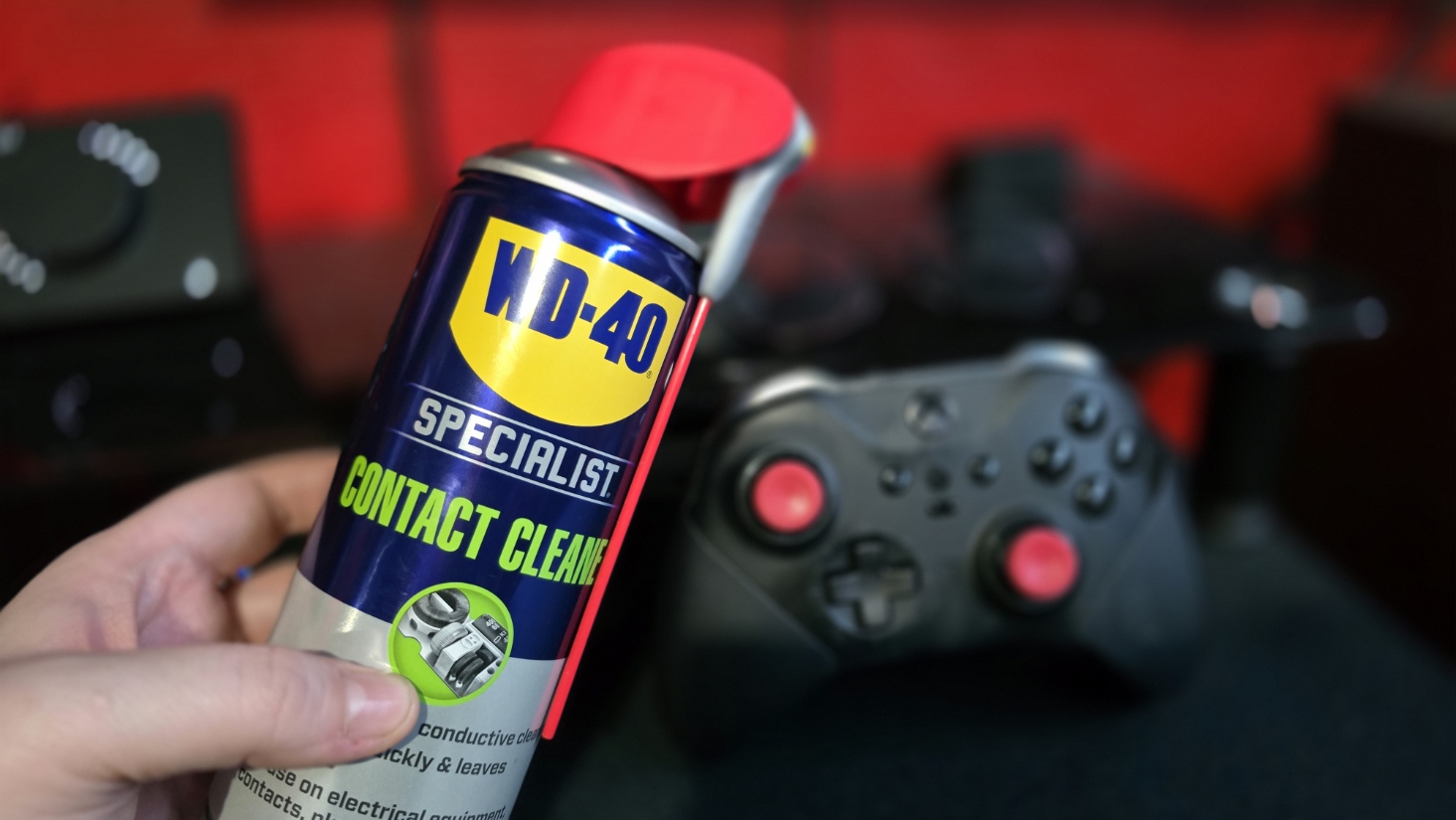Finally, Intel is getting your Android and iOS phones to work with Windows like never before
Intel Unison looks to finally be the end-all solution to get iOS and Android to play nicely with your computer for SMS, calls, photos, and more.
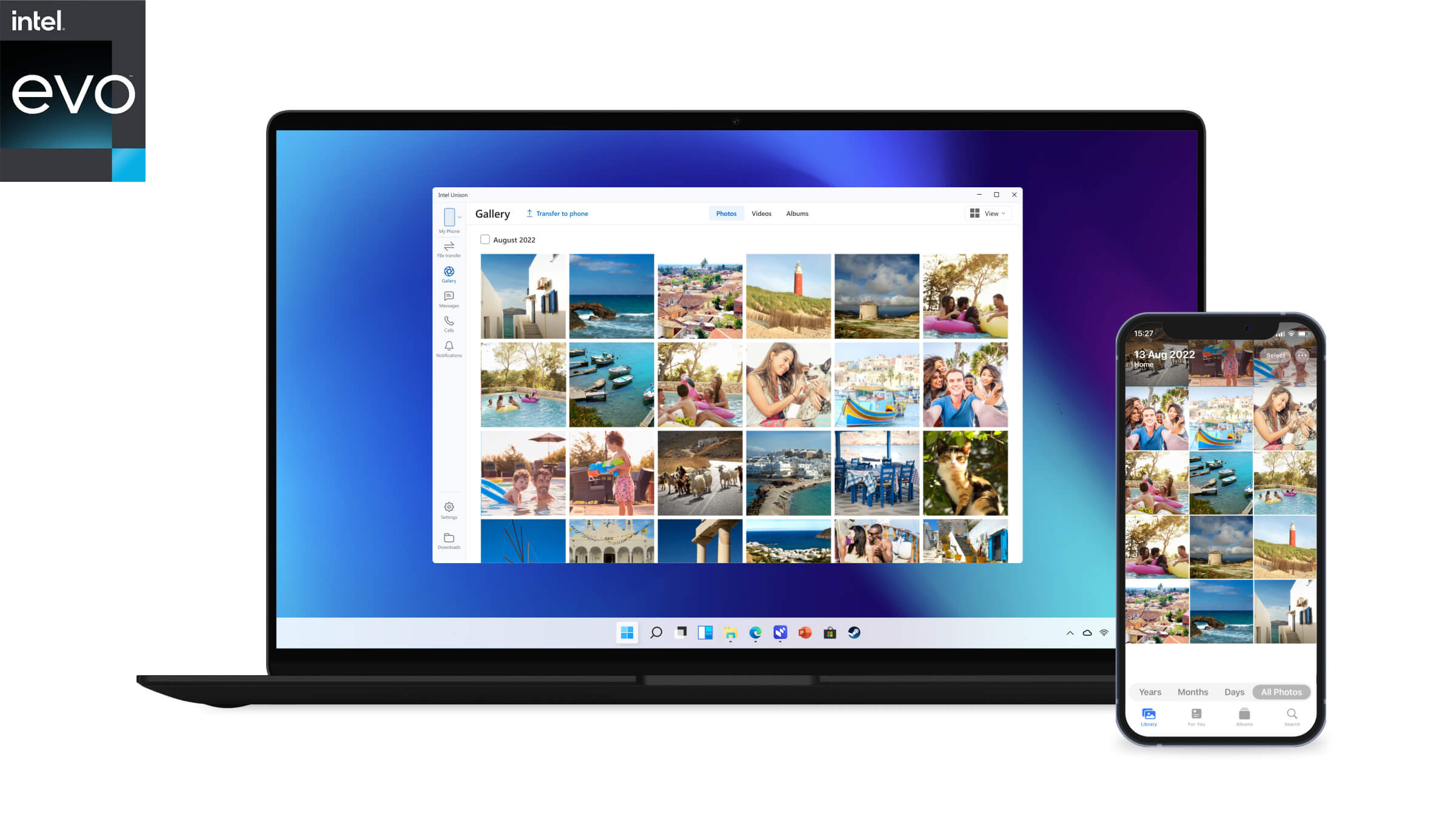
What you need to know
- Intel bought Screenovate late 2021 and is now innovating the software for wide release.
- Intel Unison will launch on select Intel Evo laptops soon, and it works with iOS and Android.
- The app extends the PC to the phone, letting you make calls, send SMS, transfer photos, data, and more.
- Intel seeks to work with everyone in the industry (OEMs, OS makers) for an open approach to Unison, so consumers get the best experience possible.
Earlier this year, I wrote an editorial about how Google’s Fast Pair initiative was wrong for the industry. The service is supposed to bring your Android phone closer to the PC, like Microsoft’s Phone Link, but it will only work on select PCs from select OEMs meaning very few people will experience it (it still hasn’t launched, of course).
Instead, I argued that companies, including Intel, Microsoft, and more, must start working together to build this functionality at the core level. Because only then can the software be powerful enough to be a big deal. While Microsoft’s Phone Link is arguably the “best new Windows feature of the past decade,” it’s also severely limited. It’s a bit slow, especially for app-streaming, and doesn’t work at all with Apple’s ubiquitous iPhone.
Well, good news. Intel is doing something about it with Intel Unison. In late 2021, Intel bought Israeli startup Screenovate – the company behind Dell Mobile Connect software, which was recently discontinued.
Intel has enormous plans for that software, and I was privy to a demonstration of it recently on a trip to Intel Israel.
Intel Unison: It does nearly everything
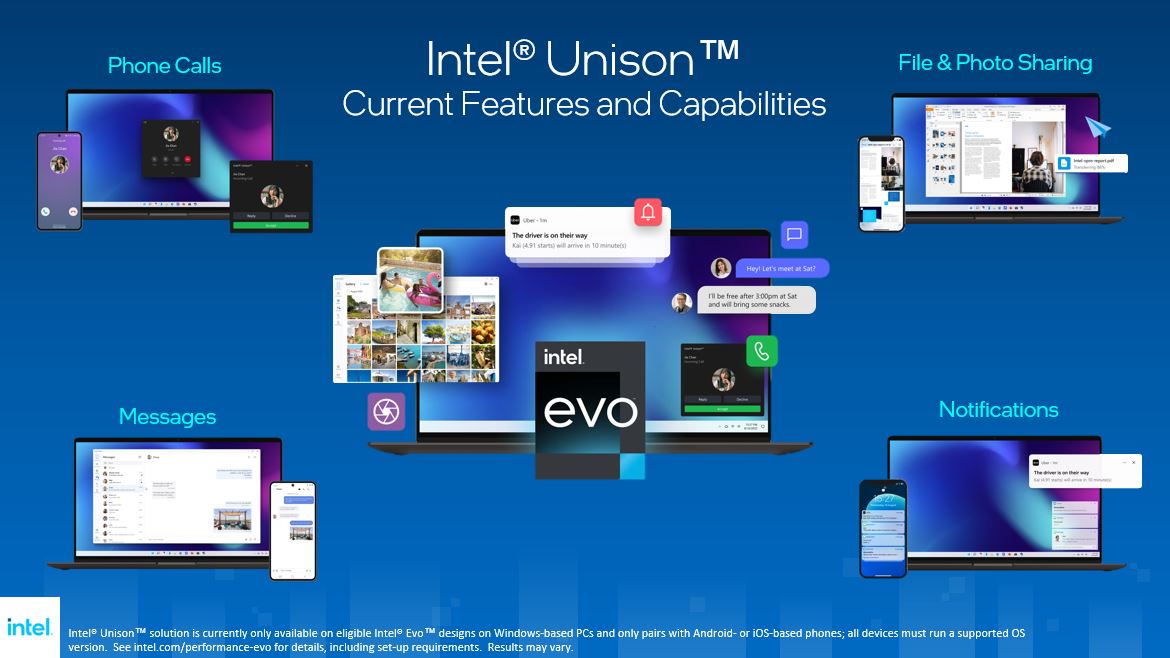
Intel Unison is a similar app to Screenovate (and Dell Mobile Connect), but it has been reworked and optimized by Intel. The software connects to your Android or iOS device and lets you do just about everything. It makes phone calls, transfers documents, sends and receives SMS messages, receives notifications, and allows for drag-n-drop photos into documents, all seamlessly for the user.
You can even use your PC’s keyboard, mouse, or touchscreen to control the experience.
Microsoft’s Phone Link does some of that (depending on if you have a Samsung or Surface Duo phone) but is useless for iPhone users. It’s also not as fast and reliable because it doesn’t use Wi-Fi Direct or specific drivers to have a deeper connection.
Get the Windows Central Newsletter
All the latest news, reviews, and guides for Windows and Xbox diehards.
Intel Unison is the complete package, and it's something consumers have wanted on the Windows PC side that Apple has done for years with iOS and macOS.
I recently spoke with Josh Newman, VP and GM of Mobile Innovation at Intel, and Ilan Bressler, VP of CCG and GM of Wireless at Intel, about the project and learned a lot about what the company has planned for the software.

As Intel sees it, the current ecosystem for connecting your phone to your Windows PC is “extremely fragmented,” with Microsoft’s Phone Link, Dell Mobile Connect, and other third-party software offering incomplete or severely limited solutions.
Intel sees itself in a position to fix all that since not only does it now own the software, but it works directly with laptop makers and builds its own Wi-Fi and Bluetooth solutions. Indeed, Intel is optimizing Unison with its hardware to ensure maximum battery life and reliability, which Screenovate did not have direct access to before.
As Newman told me, Intel wants to “elevate the quality of the experience” with Unison and “encourage defragmentation” in the industry around this technology.
Intel Unison: Starting with Intel 12th Gen Evo …
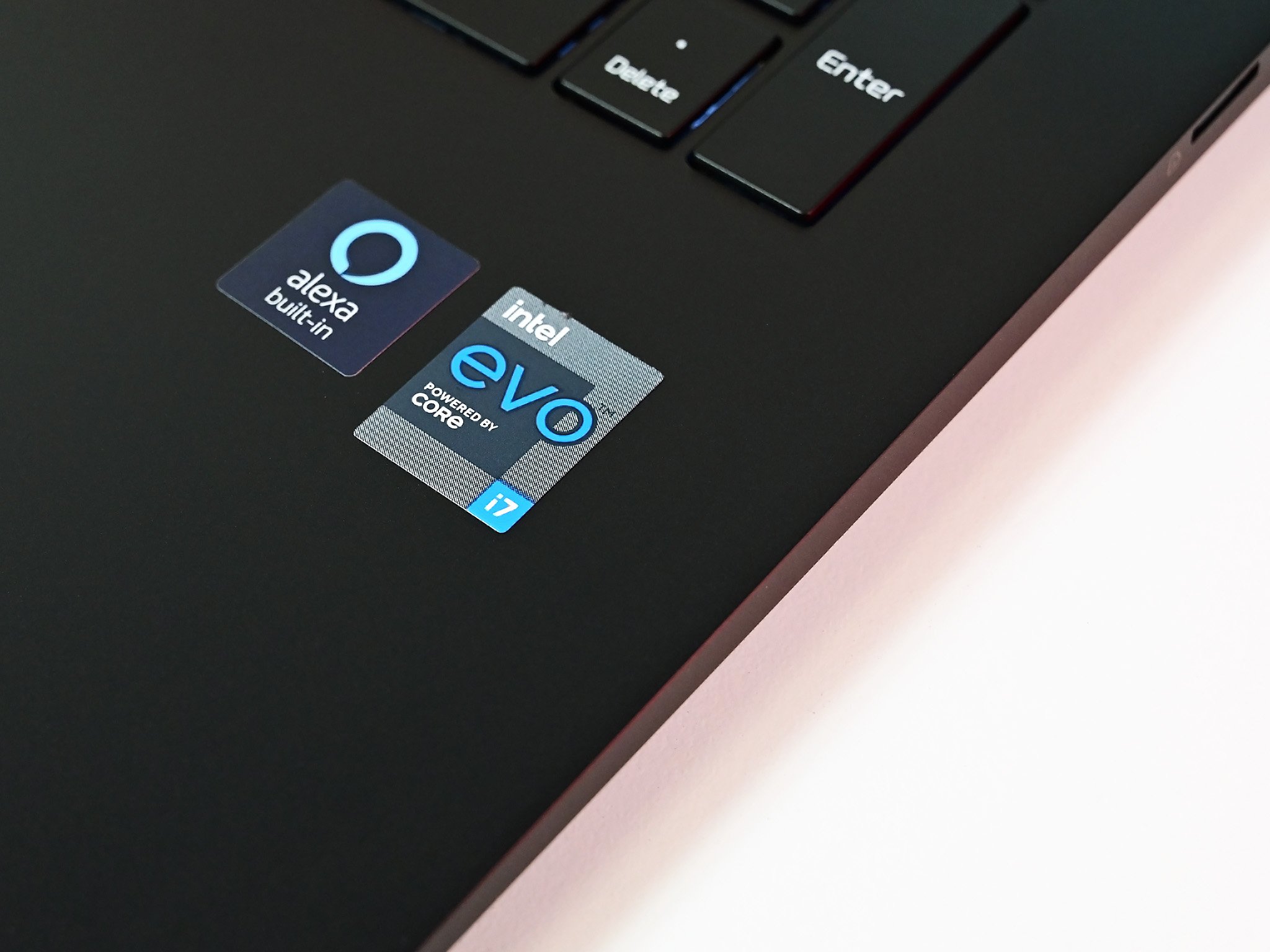
The big question I had for Intel about Unison was availability. Dell Mobile Connect (Intel Unison’s predecessor) was arguably the best mobile solution, but it was only available on select XPS systems that Dell had tested.
Intel Unison is going to start that way too, unfortunately, but that’s only because Intel is just beginning with this technology and wants to ensure quality.
Intel refers to this as its first phase.
Long term, however, Intel has big plans for Unison.
The app will be first launched on select Intel 12th Gen Evo systems from Acer, HP, and Lenovo "this holiday season." But it gets a broader launch with Intel's 13th Gen Mobile processors and Evo designs later in 2023.
While OEMs will have the option to pre-install it on select systems for an out-of-the-box experience, Intel is also planning on distributing the app as a direct download. If Intel has validated your system, it should work and be installable.
The goal for Unison, however, is not to be limited to select PC systems, and Intel wants it to be as comprehensive as possible so that it is the defacto mobile solution. It knows that to achieve this goal it can’t be closed, which is why the company describes Unison as being “open.”
Intel plans to work with anyone and anybody who wants to push the project forward, which includes Microsoft, since this would effectively trump its Phone Link software. Whether Intel and Microsoft eventually merge the two apps remains to be seen, but Intel rightly believes its solution is the best for consumers since it does so much more.
Working directly with Microsoft could eventually build deeper support for Unison if it wants to do so.
What about AMD- and Qualcomm-based systems? Intel hasn’t spoken to them yet, but it’s not ruling out cooperation there, either. Of course, AMD and Qualcomm have business reasons not to cooperate with Intel on this project. Still, if those companies are interested in the best experience for end users, Intel is open to working with them.
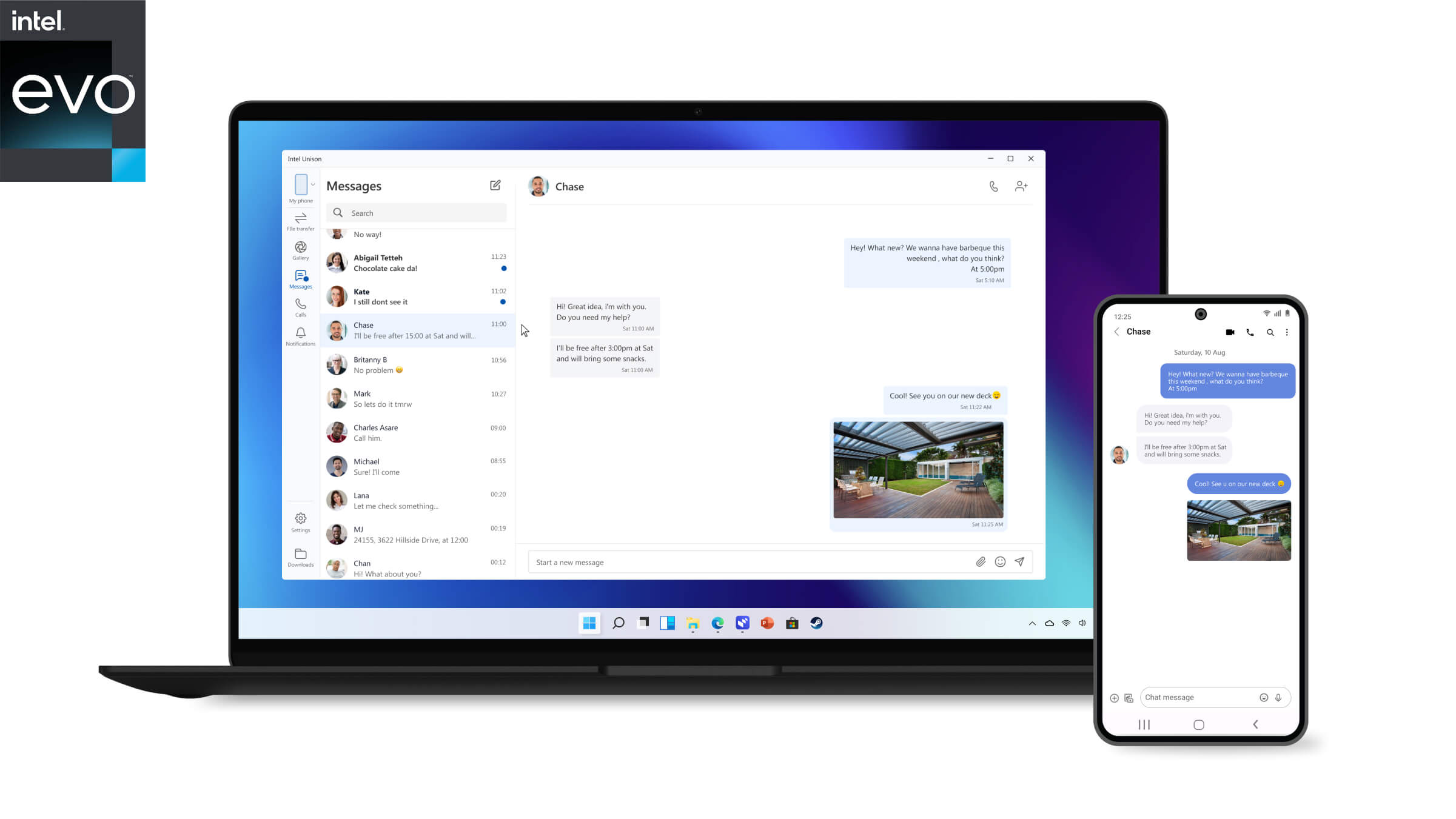
Newman tells me that Unison uses “standard APIs” to get it to work on iOS, so Apple’s direct collaboration here, which is doubtful as always, is unnecessary. That’s good news for those with iPhones who prefer to work with Intel-based laptops.
For the first time, iOS won’t be a second-class citizen on Windows laptops, undoubtedly much to the chagrin of Apple.
Finally, Newman doesn’t underestimate the challenge here, noting that “this is really hard” to solve and that it will take “steps to get there” for Intel Unison before it is as widely available as possible. But if there was ever a way this problem could be solved, Intel and its close relationship with Microsoft and PC OEMs is the way to go.
Just like it "owns" Thunderbolt, has the most significant share of mobile processors and offers the most popular Wi-Fi and Bluetooth solutions, Intel is invested in seeing Unison as the default solution for mobile connectivity with PCs, and I'm here for it. You should be too.

Daniel Rubino is the Editor-in-chief of Windows Central. He is also the head reviewer, podcast co-host, and analyst. He has been covering Microsoft since 2007 when this site was called WMExperts (and later Windows Phone Central). His interests include Windows, laptops, next-gen computing, and wearable tech. He has reviewed laptops for over 10 years and is particularly fond of 2-in-1 convertibles, Arm64 processors, new form factors, and thin-and-light PCs. Before all this tech stuff, he worked on a Ph.D. in linguistics, performed polysomnographs in NYC, and was a motion-picture operator for 17 years.
